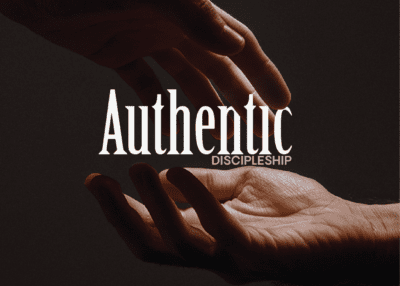Keep your heart with all vigilance, for from it flow the springs of life. Proverbs 4:23
The word heart refers to the inner life. What the writer of Proverbs is talking about here is the life of the soul.
The message today is a very practical one: What does it mean to keep your heart? What does this look like? Why is this so important? How am I to go about doing this?
One of the joys of preparing this week has been to immerse myself in the wisdom of older writers who have much to teach us on practicing Proverbs 4:23. So, I will be quoting extensively from others today as well as speaking personally from my own experience.
Keep Your Heart
Keep your heart with all vigilance, for from it flow the springs of life. Proverbs 4:23
You might say, “Well, only God can keep my heart.” That is like the farmer saying, “Only God can make my harvest grow,” and so he sits around twiddling his thumbs. Here God gives us a command, an active duty. This is something that God calls his people to do.
When you become a Christian, God gives you a new heart, a heart that loves God, a heart that trusts God. If anyone is in Christ he or she is a new creation: The old has gone, the new has come. But God also says to us: Keep your heart!
John Flavel wrote a book called, “Keeping the Heart,” in which he says,
The greatest difficulty in conversion, is to win the heart to God. The greatest difficulty after conversion, is to keep the heart with God.
God said to Samuel on one occasion, “Man looks on the outward appearance, but God looks on the heart” (1 Samuel. 16:7). The primary focus of the eye of God is fixed first on your heart. So, the eye of the Christian should be fixed there too. Flavel says:
The keeping and right managing of the heart in every condition is one great business of a Christian’s life.
Another wise writer was a man called Octavius Winslow, who began one of his books with these words:
If there is one consideration more humbling than another (any other) to a spiritually minded believer, it is that, after all God has done for him, after rich displays of his grace, the patience and tenderness of His instructions, the repeated discipline of his covenant, the tokens of love received, and the lessons of experience learned, there should still exist in the heart a principle, the tendency of which is to secret, perpetual, and alarming departure from God.
After all that God has done for you; after all your experience as a Christian; after all your service as a missionary or as a Christian leader, or however you serve the Lord, there still exists in your heart a pulling away from God. It is secret, and it is perpetual, and it is alarming.
John Bunyan is famous for writing “Pilgrim’s Progress.” But he wrote another book called “Holy War” in which he pictured the soul as a walled city surrounded by enemies. There are enemies outside the city who need to be resisted, and there are traitors inside the city who need to be tracked down and exposed.
The heart of a Christian is like a city that needs to be guarded. Your heart needs constant defending against the enemies on the outside and the traitors hidden inside your heart: “Guard your heart with all vigilance, for from it flow the springs of life” (Proverbs 4:23, NIV). iii
Why Keep Your Heart
Keep your heart, for from it flow the springs of life. Proverbs 4:23
Bunyan took his imagery from the world of military conflict. Let’s use a different picture from the world of music.
My father-in-law pursued a career as a concert musician. One of the great privileges of his life was the use of a Stradivarius violin. He didn’t own it. I wish he did because these things are worth millions of dollars!
You would think that a violin that is worth millions of dollars would keep itself perpetually in tune. But every time he took this massively expensive instrument out of the case, the first thing he did was to tune it!
Your heart is like that violin. It is of great value; far greater value than a Stradivarius. It is of more value than the whole world, but its nature is that it constantly falls out of tune. So, I need to tune my heart. I need to keep my heart because from it flow the springs of life.
If you were to go a day or a week with your heart out of tune with God, the music that would come from your life would be discordant. It would not be beautiful. It would be atonal. The sound would be ugly, offensive to people around you, and most of all, it would be offensive to God.
But if you keep your heart in tune, something beautiful will come from it.
From it will flow the springs of life! Joy, love, peace, strength, courage, and contentment all flow from a heart that is kept in tune.
Where do the “springs of life” come from? What would make you really happy? If you could just have one thing, what would it be? What would make you say, “This is life!”
The natural instinct for us is to think that if the circumstances of our lives were different, the springs of life would flow. When I am in a different place… When I have a different job… When I’m in a different financial position… When I’m in a different relationship…
Ask yourself this question: Where do I think the springs of life flow from? Being married? Having children? Having children who believe? Living in Florida? Leading a thriving ministry? Where do the springs of life flow from?
God is telling you the answer: The springs of life flow from the heart.
Wherever you go, whatever you do, you carry your own heart with you. If you do not guard your heart, the springs of life will be blocked up for you. Wherever you go, whatever you do, you will carry this fountain of unhappiness with you.
No change of circumstances will ever change this reality, because it comes from the heart. So, keeping the heart is of huge importance. The million dollar question is: How are we to do this?
How to Keep Your Heart
Keep your heart with all vigilance, for from it flow the springs of life. Proverbs 4:23
Here are five steps that are involved in guarding your heart with all vigilance.
1. Watch
Keep your heart with all vigilance! This means watching. A wise Christian studies the Bible and his or her own heart. You have to become the expert on your own heart. No one is in a better position to do this than you.
Jesus said, “Watch and pray so that you do not enter into temptation.” Paul said to Timothy, “Watch your life and your doctrine” (1 Timothy 4:16), and he said to the Ephesians elders, “Watch yourselves and the flock over which God has made you overseers” (Acts 20:28).
How are we to do this? Most of you will be familiar with the concept of a dashboard. Think about your car—as you drive along the road there is certain information that you need to have close at hand: What speed are you going? How much fuel do you have left in the tank?
Then there is other information like the temperature of your engine, and the level of your oil. You don’t watch that constantly, but if the temperature of your engine rises you need to know. All of this information is displayed on a dashboard in front of you.
The concept of the dashboard has become very popular in business. There are key metrics you need to watch, and any movement in them will alert you to growth or decline in your sales, clients, revenue, enrollments, etc.
What would a dashboard for your soul look like? There would be red lights and green lights. Red lights would be impulses in your soul that have the tendency to secret, perpetual, and alarming departure from God.
Let me give you some examples of red lights that you might put on your dashboard: Fear, pride, greed, self-pity, resentment, cowardice, anger, hard thoughts about God, and coldness in worship—any sense of formality in worship, or any sense of going through the motions.
These are just a few impulses of the heart that you might want to put on your dashboard. You can use these, but remember God says to you, “Keep your heart,” not your neighbor’s heart.
No one can know the impulses that lurk in your heart better than you. So be honest with yourself, and identify the impulses of the heart that you most need to guard against.
I encourage you to get a pen and paper and write these things down. Begin making a list of things that belong on your dashboard. Do this because it will give you clarity.
The items on your list will change over time. New situations will bring new challenges. So you need to keep the dashboard current.
John Calvin said that nearly all the wisdom we need comes in two parts—the knowledge of God and knowledge of ourselves. That means you’ve got to know God and you’ve got to know your own heart. Don’t be a stranger to your own heart. Keep your heart with all vigilance.
Watch your heart for changes and trends. A. W. Pink said:
For the Christian to keep his heart… means for him to pay close attention to the direction in which his affections are moving, to discover whether the things of the world are gaining a firmer and fuller hold over him, or whether they are increasingly losing their charm for him.
Watch the direction in which things are moving in your heart. Keep your heart with all vigilance.
The momentum of sin, which always begins in the heart, is like a stone rolling down a hill. It is easy to stop at the beginning, but once it gains momentum, it’s very difficult to stop. So, keep your heart with all vigilance: Watch for the first flicker of a red light on the dashboard.
Every time you hear the story of a Christian whose life has gone into total moral collapse you can be sure of one thing. Whenever you hear about this kind of thing happening, you can be sure that behind that story the person had a long history of not dealing with their own sin.
2. Investigate
You were running well. Who hindered you? Galatians 5:7
There was a time when you were making good progress in the Christian life. You had a heart for God. But that is no longer true of you.
You found joy in Christ. Your love for the Savior burned brightly. You had great passion for the advance of the gospel: You made significant sacrifices. You faced difficulties with courage. You battled against deeply rooted sins in your life and you grew in holiness.
What happened to you? What stopped you? What are the weights that have slowed you down? What is in you that has got in the way of your continued progress? What hindered you? Who hindered you?
This is a place to be ruthlessly honest with yourself. You say, “I’m not really sure.” Then ask God to show you your own heart, “Search me, O God, and know my heart. Try me and know my thoughts. And see if there be any grievous way in me” (Psalm 139:23-24).
Talk it out with a Christian friend or with a pastor if you need to, but don’t settle without the answer. It’s too important. How can you deal with the problem if you don’t know what it is? And if you don’t deal with the impulses that tend towards secret, perpetual, and alarming departure from God, how are you going to persevere as a Christian?
I fear that there are many Christians who study the Bible, but who hardly give their own hearts a second look, because they have never learned how to do this.
3. Confess
If we confess our sins, he is faithful and just to forgive us our sins and to cleanse us from all unrighteousness. 1 John 1:9
This is a marvelous promise, but we must take its condition seriously: “If we confess our sins…” In other words, if we see the red light, and then we bring it to God in confession and trust in the blood of Christ to cover it. What is the last sin you confessed? A. W. Pink says:
Many talk about salvation, but few experience the joy of it. There is much of the form of godliness but little of the power of it. Oh, how rare it is to find any who know anything experimentally of the power that separates from the world, delivers from self, defends from Satan, makes sin to be hated, Christ to be loved, truth to be prized, and error and evil to be departed from.
What’s missing? The reality of keeping our heart—watching, investigating, and confessing.
Confession must always be first to God, but it will help you if you are able to talk honestly with someone who knows you and cares about you. This has been such a help to me in my own life.
I was recently in a conversation with a few of our lay leaders. I told them that I saw some things changing in my own heart, and that I didn’t like what I saw. I listed several things. One of them was that I am becoming less patient. That’s a red light. It needs to be addressed.
I was talking with a friend the other week. He is in his early 70’s and he is experiencing another passage of life, in which he is moving away from some responsibilities that he had before.
He said to me, “I can see the path to becoming a grumpy old man from here and I don’t want to go down it.” Do you see what he’s doing? He’s watching his heart.
He sees what is coming, and he is saying, “If I allow that to take root in my soul, I will dishonor Christ in my older years. I must guard my heart with all vigilance!”
4. Commit
For every red light on the dashboard, showing impulses that lead us away from the Lord, there is a green light that will be its opposite. Green lights are impulses in your soul that reflect what the Bible calls the “fruit of the Spirit” in your life.
You can make a list straight from Galatians 5:22. The fruit of the Spirit is
love, joy, peace, patience, kindness, goodness, faithfulness, gentleness, and self-control. This is not an exhaustive list. You could add others. Forgiveness would be one example. Courage would be another.
Those of you who are parents to young children know that the best way to move a child away from something harmful is to get the child’s attention focused on something better.
The little fingers wander towards the electric socket, so you distract the child’s attention to something else. Using this picture, A. W. Pink says:
The best security for the soul against the allurements of Satan is to have it engaged with a lovelier and more satisfying Object. A heart which is filled and engaged with good is best protected against evil.
Identify the green lights that correspondence to your red lights and commit to pursuing them.
“Lord, by your grace and through your power, I renounce this impatience. I want nothing more to do with it. Lord, help me now to grow in the patience that I seek. Guard my heart from this enemy within, and use the circumstances that have provoked this impulse to sin in my heart to become the occasion of new growth in likeness to Jesus, for your glory.”
That’s how Christian growth happens. The very circumstances that provided the red light, are the very things that produces new growth.
5. Trust
The person who is far from God has no interest in looking into his own heart. But when God gives you a new heart, you have a new interest in keeping it, as he calls you to do. Examining your heart to discover the trends of sin in your own life is something that godly people do.
But when godly people look into their own hearts, they find it very discouraging. We are amazed that after all God has done for us, after all we’ve experienced, there should still exist in our hearts this principle that tends towards a secret, perpetual, and alarming departure from God.
So, looking at your own heart can easily lead to you feeling defeated. Robert Murray McCheyne had the answer for that: “For every look at self, take ten looks at Christ.” vi
As you look at your own heart, Christian, remember that by his blood he opened a fountain for cleansing. We need it every day of our lives. Let’s be done with this pious religion of moral superiority that so many have confused for Christian faith.
We need the cleansing of the blood of Jesus. The sins that lurk in our hearts are not greater than the power of the blood of Christ to go on cleansing our lives. And he loves to do it.
Andrew Gray put today’s message into a single sentence: “Christians can never trust their hearts too little, and they can never trust God too much.” Keep your heart with all vigilance, for from it flow the springs of life.
[elementor-template id=”128476″]





